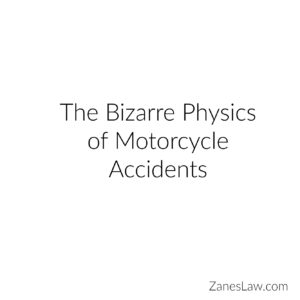![]() Contact Us (866) 499-8989
Contact Us (866) 499-8989
Do Motorcycle Accident Laws Differ From State to State?
- The Difference Between At-Fault and No-Fault States
- The Difference Between Contributory and Comparative Negligence
- The Filing Deadline for Motorcycle Accident Lawsuits Varies by State
- Insurance Laws Differ State by State
- Damages You Could Obtain From a Motorcycle Accident in Arizona
- A Lawyer Can Advise You on Which State Laws Apply to Your Motorcycle Accident Case
- Contact an Experienced Phoenix Motorcycle Accident Attorney From Our Firm Today
- Home
- FAQs
- Motorcycle Accidents
- Do Motorcycle Accident Laws Differ From State to State?
Motorcycle collisions are a serious concern for riders and drivers alike, and the laws surrounding these incidents can be complex and confusing. But did you know that motorcycle accident laws differ from state to state?
Understanding how accident laws vary depending on your state can be complicated and confusing. Fortunately, the team at Zanes Law is here to provide the legal knowledge you need to protect your right to compensation if you’re involved in a bike crash.
The Difference Between At-Fault and No-Fault States
One major difference between at-fault and no-fault states is how insurance claims are handled. In at-fault states, the insurance company of the driver who caused the accident is responsible for paying for damages and injuries. In no-fault states, each driver’s insurance company pays for their own damages and injuries regardless of who caused the accident.
It’s important to know which type of state you’re in and how it can affect your insurance coverage and potential compensation in the event of a motorcycle accident. If you still have questions about your state’s fault laws, a skilled Phoenix motorcycle accident lawyer can offer the advice you’re looking for.
Is Arizona a No-Fault State or an At-Fault State?
When it comes to motorcycle and other auto accidents, Arizona is an at-fault state. There are only 12 states that differ from Arizona and follow a no-fault standard. Those states include:
- Florida
- Hawaii
- Kansas
- Kentucky
- Massachusetts
- Michigan
- Minnesota
- New Jersey
- New York
- North Dakota
- Pennsylvania
- Utah
For a free legal consultation, call (866) 499-8989
The Difference Between Contributory and Comparative Negligence
In states that follow contributory negligence laws, if you are found to be even 1% at fault for the accident, you probably won’t be able to collect any compensation for your injuries, medical bills, and other accident-related losses.
In states that follow comparative negligence laws, it’s a different story. These states allow those involved in motorcycle accidents to pursue compensation even if they were partially at fault for the collision.
However, the amount of compensation you’re eligible to receive in a comparative negligence state will be reduced in proportion to your percentage of fault. Your percentage of fault will be calculated based on how much you’re to blame for the collision.
Understanding Pure and Modified Comparative Negligence
Among states that follow comparative negligence for motorcycle accidents, there are a few key differences to understand. In comparative negligence states, you can pursue compensation for a bike crash no matter how high your percentage of fault is.
In states with modified comparative negligence laws, you’ll only be able to seek damages if your percentage of fault is below a certain percentage. Most states bar you from pursuing damages if your percentage of fault is above 50% or 51%.
Remember, the amount of compensation you’re legally allowed to receive will still be reduced by your percentage of fault regardless of whether you’re in a pure or modified comparative negligence state.
Does Arizona Follow a Contributory or Comparative Negligence Law?
According to A.R.S. § 12-2505, Arizona has a pure comparative negligence law. If you’ve been involved in a bike crash outside of Arizona, refer to the state’s negligence laws to determine if you’re eligible to pursue damages.
The Filing Deadline for Motorcycle Accident Lawsuits Varies by State
Fault and negligence laws aren’t the only legal standards that differ from state to state. The statute of limitations for motorcycle accident lawsuits also varies depending on which state your accident occurred in.
Depending on your state, you could have as little as one year or as many as six years to file a personal injury lawsuit against the at-fault party. According to A.R.S. § 12-542, Arizona gives motorcycle riders two years from the date of the collision to submit a suit.
Click to contact our personal injury lawyers today
Insurance Laws Differ State by State
Some states have laws that require motorcycle riders and drivers of other motor vehicles to carry personal injury protection (P.I.P.) insurance in case of an accident. A PIP insurance policy can cover damages no matter who is at fault for the motorcycle accident.
Arizona does not require drivers to carry P.I.P. insurance, but drivers may opt to purchase P.I.P. insurance. If you’ve been involved in an accident with an uninsured motorist or a driver with coverage, you’ll want to consult with an experienced attorney to find out how you should go about pursuing compensation.
Complete a Free Case Evaluation form now
Damages You Could Obtain From a Motorcycle Accident in Arizona
Familiarizing yourself with the differences between state motorcycle accident laws can help you file a successful claim after a crash. If your insurance claim or lawsuit yields compensation, you could receive a number of different damages, including:
- Current and future medical expenses
- Cost of prescription medications, assistive medical devices, and physical therapy
- Lost wages
- Decreased earning ability
- Vehicle repair costs
- Pain and suffering
- Emotional distress
- Diminished quality of life
Your attorney can assess your unique, post-accident circumstances and determine which damages you’re entitled to. Once they’ve calculated how much compensation you’re owed, they’ll fight for the financial remedies you need to get your life back on track.
A Lawyer Can Advise You on Which State Laws Apply to Your Motorcycle Accident Case
Without a lawyer on your side, it can be hard to decipher the laws and statutes that apply to your motorcycle accident claim. Fortunately, an attorney can explain the differences in state laws and make sure you understand the rules that accident victims in your state have to play by.
Remember, no matter which state you’re in, there’s a time limit for filing a motorcycle accident suit. That means you’ll want to hire an attorney ASAP. Doing so will help you understand your state’s laws and ensure your suit is filed on time.
Contact an Experienced Phoenix Motorcycle Accident Attorney From Our Firm Today
While motorcycle accident laws may differ state-by-state, your right to speak with an attorney and learn about your legal rights remains intact no matter where you are. To find out if you have grounds for a claim or lawsuit after a bike crash, contact the team at Zanes Law today.
We’ll schedule a free, no-obligation consultation with one of our experienced motorcycle accident attorneys. They’ll meet with you to discuss your accident, answer your questions about Arizona’s motorcycle laws, and let you know if they can help you seek compensation for your losses.
Call or text (866) 499-8989 or complete a
Free Case Evaluation form
 The Bizarre Physics of Motorcycle Accidents
The Bizarre Physics of Motorcycle Accidents
The Bizarre Physics of Motorcycle Accidents Riding a motorcycle on today's highways, you have to ride in a very defensive manner, and it's helpful to understand the physics of motorcycle accidents.
 Zanes Settles a Motorcycle Accident for Over $400,000
Zanes Settles a Motorcycle Accident for Over $400,000
The legal team at Zanes Law is thrilled to announce its latest big win. In early February, we settled for $410,000 after our client’s motorcycle rear-ended another vehicle. The settlement
 5 Tips for Safely Riding Your Motorcycle this Summer
5 Tips for Safely Riding Your Motorcycle this Summer
Nothing is better than hopping on your motorcycle and going for a ride on a nice summer day. But before you turn on the engine, it’s important to be sure that you understand how to stay safe. Here
 How Negligence Is Established in a Motorcycle Accident
How Negligence Is Established in a Motorcycle Accident
After a motorcycle accident, both victims need to pay for their injuries and property damage, but who pays whom? In at-fault states like Arizona, the person who is more negligent pays. The law states
Receive a Free, No-Obligation, Case Evaluation Now



